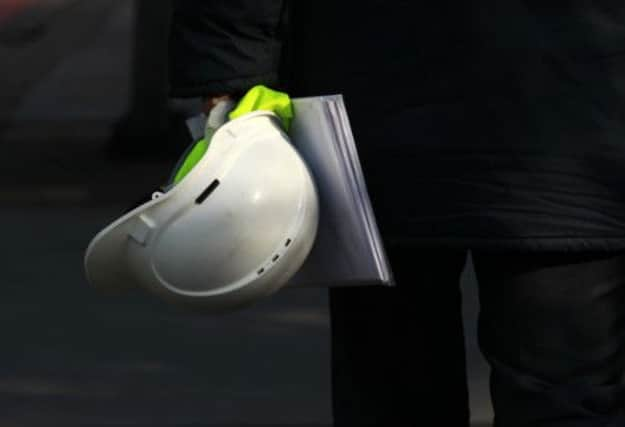Deaths at work up in Scotland, but down across UK


Deaths rose north of the Border for the second year running, while falling across the UK.
Advertisement
Hide AdAdvertisement
Hide AdHowever, this is partly down to the higher levels of agriculture and industry in Scotland.
There were 22 deaths at work in Scotland in 2012-13, up from 19 the year before, and 14 in 2010-11. In the UK as a whole there were 148 last year, down by 24.
David Snowball, regional director for Scotland and the north of England for the Health and Safety Executive (HSE), which compiled the report, said risk-taking farmers, and a lack of precaution in industry, were factors in many of the deaths.
“In Scotland, small self-employed farms are predominant,” he said. “In those circumstances, farmers are very resourceful, but it gets them into difficulty.”
One farmer died after falling from a roof in Dumfries and Galloway in January. William Davidson, 62, had been working on a building at Poldean Farm, near Moffat, when fell about 30ft.
Mr Snowball advised the use of safety nets. “There’s sometimes a failure to appreciate that people will make foreseeable mistakes,” he said. “It’s not just ‘use common sense’, it requires more structured planning.”
However, he added that Scotland was no worse than other parts of the UK with similar occupational demographics, such as the north of England.
He said the rising deaths of the past two years did not reflect a general worsening of conditions. Scotland also has the North Sea oil and fishing industries, whose workforces are subject to the elements. In December, a crew member died when the oil rig emergency rescue vessel Vos Sailor got into difficulty after a storm hit the North-east. A further 11 people had to be winched to safety.
Advertisement
Hide AdAdvertisement
Hide AdThe Scottish Trades Union Congress (STUC) wants more to be done to protect workers.
Grahame Smith, STUC general secretary, said: “Once again we have seen a rise in the number of workers killed in Scotland – 22 workers left for work never to return home and this is unacceptable and does not compare to an overall reduction in the UK wide figure of 148 which is 24 fewer than last year.
“These figures are the tip of the workplace fatality iceberg and do not include deaths through industrial disease, occupational traffic accidents or in sectors not[covered by the HSE].”
The STUC also wants to see fatal accident inquiries processed quicker and their recommendations enforceable by law.
“It takes too long for bereaved families to get justice,” assistant secretary Ian Tasker said. “When sheriffs do make recommendations there is no legal basis for them to be brought into law.”
Across the UK, deaths in construction fell from 48 to 39, and from 35 to 29 in agriculture, but there was a rise from six to ten in the waste and recycling sector.
Richard Evens, commercial training director at St John Ambulance, said: “If employers want to reduce the impact of these incidents, it is essential they provide first aid training and equipment for employees, so that they can act in an emergency.”